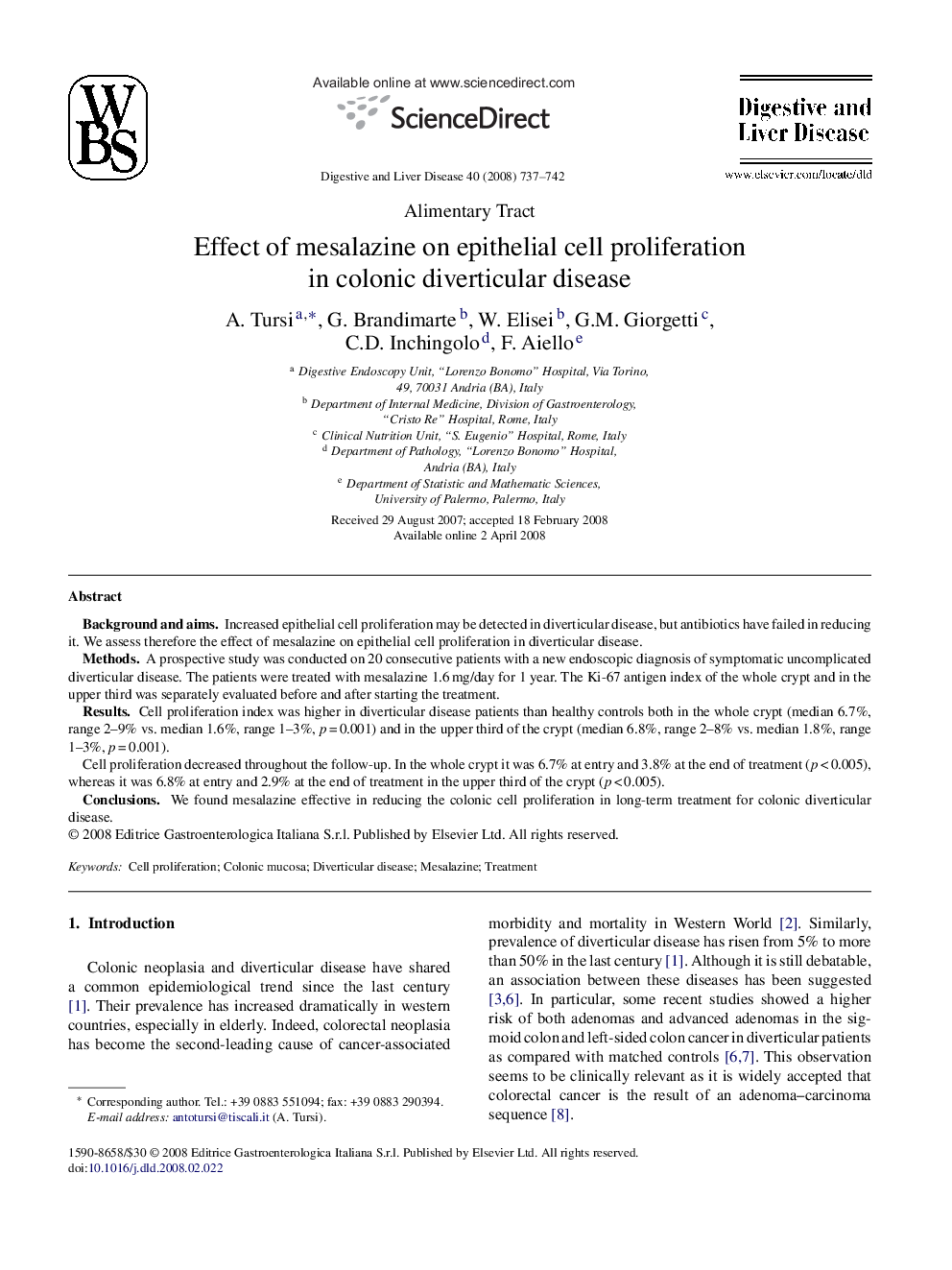| Article ID | Journal | Published Year | Pages | File Type |
|---|---|---|---|---|
| 3265101 | Digestive and Liver Disease | 2008 | 6 Pages |
Background and aimsIncreased epithelial cell proliferation may be detected in diverticular disease, but antibiotics have failed in reducing it. We assess therefore the effect of mesalazine on epithelial cell proliferation in diverticular disease.MethodsA prospective study was conducted on 20 consecutive patients with a new endoscopic diagnosis of symptomatic uncomplicated diverticular disease. The patients were treated with mesalazine 1.6 mg/day for 1 year. The Ki-67 antigen index of the whole crypt and in the upper third was separately evaluated before and after starting the treatment.ResultsCell proliferation index was higher in diverticular disease patients than healthy controls both in the whole crypt (median 6.7%, range 2–9% vs. median 1.6%, range 1–3%, p = 0.001) and in the upper third of the crypt (median 6.8%, range 2–8% vs. median 1.8%, range 1–3%, p = 0.001).Cell proliferation decreased throughout the follow-up. In the whole crypt it was 6.7% at entry and 3.8% at the end of treatment (p < 0.005), whereas it was 6.8% at entry and 2.9% at the end of treatment in the upper third of the crypt (p < 0.005).ConclusionsWe found mesalazine effective in reducing the colonic cell proliferation in long-term treatment for colonic diverticular disease.
